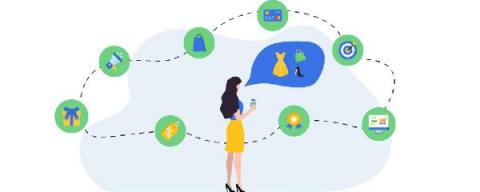Teams | Collaboration | Customer Service | Project Management
Customer Experience
What can happen when tutorials are woven into the customer experience
It was months into the pandemic, and we were all stuck inside. Wintertime in Wisconsin can be beautiful, with its snowy scenes and frozen lakes that seem to stretch on forever. But this winter was different. It felt cold, dark, and lonely without any chance of seeing friends and family. After several months of watching movies and baking cookies, I realized I needed a pastime. Something to keep my hands and my mind occupied.
Automation in Customer Service: Finding the best balance between humans & technology
There is a push to automate everything, but is this the best way forward? The financial case for automation in customer service to lower your costs is clear but this shouldn’t be the only consideration. You also need to assess the impact that a service or helpdesk automation will have on your business, your employees and your customers. If done without putting the customer first, your automation in customer service might be perceived as impersonal.
Customer service vs. customer experience: Here's the difference
You’re at your desk when you overhear two fellow support agents debating the difference between customer service and customer experience. They ask you for your take, and your palms turn sweaty—you have no idea how they’re different. Many support agents use customer experience and customer service interchangeably, but the two terms do not mean the same thing. Understanding the difference between them is critical. Why?
How being proactive can deliver better customer experiences
People are happier if they are in control. That‘s why customers expect to be kept informed when something will be delivered or someone will turn up to install, service, or repair something. If something goes awry it is essential that you proactively let customers know before they encounter the problem.
How to Boost Customer Satisfaction With Contact Center Services
An increasing number of people today prefer to communicate via multiple channels like text messaging, email, video calling, etc., over voice calls. And this is the same for customer service too. After all, nobody wants to wait in a long call queue to talk to customer service representatives. However, with contact center services, customers can easily register their concerns and get their queries resolved through the communication channel they prefer.
What world-class customer experience design looks like in 2021
Companies are increasingly trying to promote customer experience into a key selling point. And for good reason—the Zendesk Customer Experience Trends Report 2021 found that 75 percent of customers will pay a premium to buy from brands that provide a great customer experience. Exceptional customer experiences require exceptional customer experience design. But what does that really look like?
What is agent experience? (and why it's good for customers, too)
Companies have long focused on customer experience; some may even say they’re, gasp, customer obsessed. But buzz words aside, all this means is that they’re putting the customer at the center of everything they do. From sales to marketing and support, these companies aim to please at every step of the customer journey. With such a heavy focus on needs of customers, far too often the needs of agents get overlooked. And in reality, the two are more intertwined than you might think.
How to create a consistent customer experience with your customer service strategy
Helpful, friendly customer service shouldn’t be seen as “optional” by your business. It has serious implications for whether customers will return to your company and spread the word about your products. According to a Qualtrics study, 95% of consumers who rate a company’s customer experience as “very good” are likely to recommend the company.
The Complete Guide to Delivering an Omnichannel Customer Experience
Customers have more options than ever. This is great from a customer point of view, but for businesses it means that having a great product alone isn’t enough to stand out. So how can you differentiate your brand? And how can you drive repeat sales and generate more referrals? A good place to start is delivering an omnichannel customer experience and streamlining customer interactions across all your channels.











